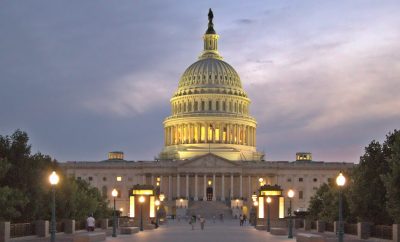
Society and Culture
When the Government Won’t Let Its Employees Work
On September 30, I logged into Facebook and saw the most peculiar post. A friend of mine works for the federal government, and his status read: “I really hope I can go to work tomorrow.”
On a normal Monday, that would be the weirdest sentiment. I’m used to seeing complaints about how the week is off to a slow start, or how the weekend is too long. Those statements are expected (and usually true). This post, though, was different.
While there was an air of lightheartedness in the post, there also was a sense of concern about the uncertain future.
As I type this, the U.S. government is in the midst of a shutdown. Approximately 800,000 people find themselves out of work due to a government-mandated furlough (leave without pay).
Here’s a quick and dirty recap of the past week: the marketplace for providers to offer their services to the hundreds of thousands of people now eligible for healthcare under the Affordable Care Act (Obamacare) opened on October 1, 2013. The Democrat-controlled Senate approved a version of the appropriations bill that would fund the government. On Friday, September 27, the Republican-led House responded with their own version of the bill, which also funded the government if key provisions of the Affordable Care Act were cut. In a move to signal that he is playing hardball, Senate Majority Leader Harry Reid sent the Senate home for the weekend, meaning the House’s version wouldn’t even be considered until Monday. Monday was the last available day for compromise to be reached without a government shutdown. This meant that the House would not receive the Senate’s revisions until later on Monday, and would have little time to vote before the shutdown took effect at 11:59 p.m.
Speaker of the House John Boehner accused the Senate and the Obama Administration of putting partisan politics before the needs of the public. The Democrats responded with the exact same accusation. A stalemate occurred, and that is where we presently find ourselves.
Instead of attempting to compromise, various members of both parties are speaking to the press to posture themselves in a favorable light to their constituents. These members of Congress are failing to realize that while they offer sound bites to various media outlets, their positive spin will never outweigh forcing almost one million Americans out of work.
It’s going to be hard to be reelected when sentiments like this one from the Washington Post: “We’re very hardworking people- we do a lot for people across the country. And I feel that we’re obviously being used as a political pawn, but we’re also not being valued for what we do.”
It sucks when Congress can’t get their stuff together for the hardworking people they’re supposed to serve.
What does the shutting down of the government entail? It’s essentially commandeering the Titanic, post-iceberg. You’re in control of a sinking ship, but you’re coasting along until it sinks. To slow down the sinking process, various items are being thrown overboard. How does the government cruise? By cutting the hours, and thus the payment, of your friends, neighbors, parents, siblings, and possibly you.
“Isn’t a shutdown the equivalent of a snow day?”
Yes it is- at least for the first few days (I know much about unemployment, and the first two or three days are actually kind of sweet: catching up on TV, sleeping in, and going to the gym in the middle of the day are great). As time wears on, reality rears its ugly head via the accumulation of bills.
In fact, this shutdown really puts things in perspective. For the past few months, I’ve been complaining about being an unemployed JD. My complaints have been numerous, considering I really have nothing to worry about: I have no bills, a free roof over my head (thanks mom and dad!), and the luxury of looking for work full-time.
Furloughed government employees are adults with families, tuition, mortgages, car payments, and future plans, all of which are funded by their salaries. Salaries that, for now, they no longer receive. Most importantly, they want to work!
So, let’s just hope that Speaker Boehner and Majority Leader Reid stop this stick-measuring test and make the best decision for the 800,000 people without income right now.
—
Featured image courtesy of [NoHoDamon via Flickr]








Comments